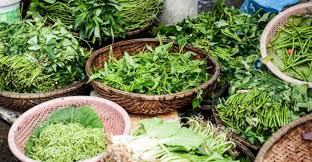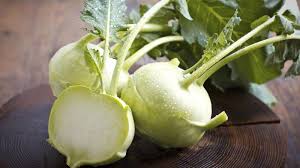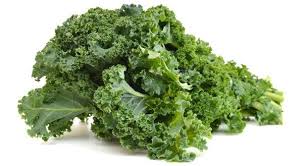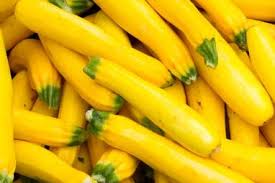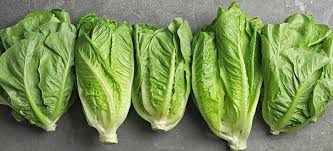Content of the Article
Mizuna ( brassica rapa there. Japanese It is a leafy green vegetable native to East Asia.
It is also called Japanese mustard greens or spider mustard.
Brassica part of the genus mizunaother cruciferous vegetables, including broccoli, cauliflower, cabbage, and Brussels sprouts.
It has dark green, fine-stemmed serrated leaves and a slightly bitter taste.
What is Mizuna?
Mizuna, spider mustard, Japanese mustard greens, water greens, kyona or scientific name Brassica juncea var. It is a plant known by many names such as.
Mizunais available in several different forms. 16 types have been identified.
Widely used in salads and often mixed with other greens, its mild, peppery flavor provides a great flavor to pasta dishes, soups, vegetable dishes and pizzas.
In addition to being delicious, this healthy greens are high in many nutrients, including vitamins A, C, and K. It is also rich in antioxidants and provides many unique health benefits.
Mizuna Types
MizunaIs one of the few vegetables grown in space as part of an experiment on the International Space Station.
It is easy to grow because it has a long growing season and grows even in the cold. Currently 16 varieties varying in color and texture mizuna is known to be. Some of these are those:
Kyona
This variety is pencil-thin and has serrated leaves.
Komatsu
This type has dark green, rounded leaves and is developed to be more resistant to heat and disease.
Red Komatsuna
Similar to Komatsuna but with burgundy leaves.
Happy Rich
The most unique is this kind of dark green with flowers that resemble miniature broccoli heads.
Vitamin Green
It has green leaves and is resistant to both hot and cold.
Regardless of the type, mizuna rich in nutrients.
Mizuna Nutritional Value
This leafy green herb is high in many vitamins and minerals, including vitamins A, C, and K. Despite its dense nutrient content, it is low in calories.
Two glasses (85 grams) raw mizuna It has the following nutrient content:
Calories: 21
Protein: 2 grams
Carbs: 3 grams
Fiber: 1 grams
Vitamin A: 222% of the DV
Vitamin C: 12% of the DV
Vitamin K: More than 100% of the DV
Calcium: 12% of the DV
Iron: 6% of the DV
This leafy green plant is important for maintaining a strong immune system. Vitamin A it is particularly high in terms of
What are the Benefits of Humana?
Rich in antioxidants
Like many other cruciferous vegetables we area is a rich source of antioxidants that protect cells from damage from unstable molecules called free radicals.
Excessive levels of free radicals can cause oxidative stress and are a trigger for type 2 diabetes, heart disease, Alzheimer's, cancer, and rheumatoid arthritis.
MizunaContains a variety of antioxidants:
kaemferol
Test-tube studies reveal that this flavonoid compound has powerful anti-inflammatory and anticancer effects.
Quercetin
A natural pigment in many fruits and vegetables quercetinIt has powerful anti-inflammatory properties.
Beta carotene
This group of antioxidants is beneficial for heart and eye health and protects against some cancers.
It is a good source of vitamin C
Mizuna It is a surprisingly good source of vitamin C.
This vitamin is a powerful antioxidant with various benefits such as supporting the immune system, promoting collagen formation and increasing iron absorption.
An analysis of 15 studies linked diets high in vitamin C to a 16% lower risk of heart disease compared to those who diets low in this vitamin.
Provides high levels of vitamin K
Like other leafy greens mizuna da Vitamin K rich in terms.
Vitamin K is known for its role in blood clotting and bone health. It helps to produce proteins involved in coagulation that limit bleeding as a result of cuts.
Supports blood coagulation
MizunaIt is loaded with vitamin K, an essential nutrient that performs many functions in the body. Most importantly, vitamin K helps promote the formation of healthy blood clots.
Clotting is essential, and forming a clot helps prevent excessive bleeding by allowing the healing process to begin. Vitamin K deficiency can disrupt this process and cause increased blood loss and easy bruising.
Vitamin K is also found in cauliflower, kale, and Brussels sprouts, among other leafy green vegetables.
Strengthens bones
In addition to promoting healthy blood clotting, vitamin K is also an important component of bone health.
Vitamin K is thought to directly affect bone metabolism and positively affect the balance of calcium, an essential mineral for building strong bones and maintaining bone density.
Several studies have found that a higher vitamin K intake may reduce the risk of bone fractures in some populations. MizunaThey are high in vitamin K and just one bowl provides 348 percent of the daily recommended value.
Improves immune health
Thanks to its impressive nutritional profile and high antioxidant content mizunaIt can also help keep the immune system running efficiently.
This is partly because it's high in vitamin C and just one bowl meets about 65 percent of the daily recommended value.
Vitamin C has been shown to reduce the duration and severity of respiratory infections, as well as reduce the risk for conditions such as malaria and pneumonia.
In addition, mizunaIt is high in antioxidants that can help strengthen immunity even more. It is also known that antioxidants provide protection against infection while improving immune function.
Contains powerful cancer-fighting compounds
MizunaProvides antioxidants that are said to have anticancer effects.
In particular, its kaempferol content protects against this disease - and test-tube studies indicate that this compound may aid in cancer treatment.
Researches, mizuna It also reveals that cruciferous vegetables such as cruciferous vegetables can significantly reduce the risk of cancer.
Protects eye health
Mizunaare two antioxidants important for eye health lutein and zeaxanthin It contains. These compounds protect the retina from oxidative damage and filter out potentially harmful blue light.
The leading cause of blindness worldwide age-related macular degenerationProtects against na (ARMD).
Consume other leafy greens such as kale, turnips, and spinach for eye health. These nutritious foods are high in both vitamin A and lutein, as well as other important health-promoting antioxidants.
What Are the Losses of Mizuna?
Although research is limited, mizuna It has not been associated with any serious side effects. However, eating too much can pose health problems for those with brassica vegetable allergies.
Due to its high vitamin K content, it can interact with blood-thinning medications such as Warfarin.
Therefore, if you are taking blood thinners, you should talk to your healthcare provider before consuming foods rich in vitamin K.
Mizuna Also, when consumed in high amounts, it can cause kidney stones in some individuals. oxalate includes. If you are prone to kidney stones, you should be careful about their consumption.
How to Eat Mizuna?
Often described as a mix between arugula and mustard mizunaIt has a slightly bitter, peppery flavor that is added to both raw and cooked dishes. It can be used raw in salads.
It can also be added to roast, pasta dishes, pizza and soups. Likewise, it can be used in sandwiches.
As a result;
Mizuna, mustard greens and other cruciferous vegetables such as broccoli, kale, and turnips It is a kind of green that is related to its vegetables.
This greens are nutrient-dense, rich in antioxidants, and high in vitamins K, A, and C.
A reduced risk of cancer has been linked to improved immune health and blood clotting, better eye health, and stronger bones.
With a slightly spicy, peppery flavor, you can use this versatile greens in salads and soups.






